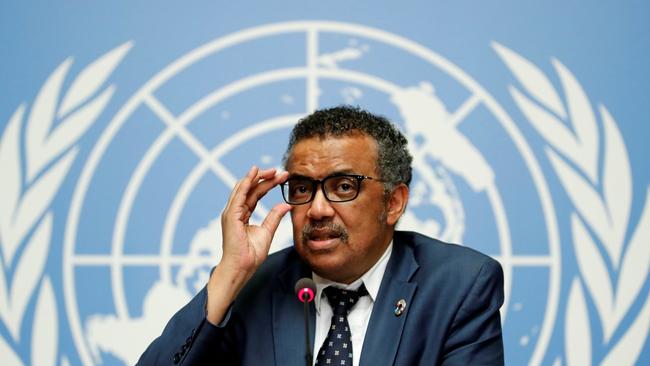"No Silver Bullet" - WHO's Tedros Warns COVID-19 Vaccine May Never Be Found Tyler Durden Mon, 08/03/2020 - 15:06
As a growing chorus of seemingly impartial observers (including sell-side analysts at JP Morgan and Goldman) suggests that returning to lockdowns might not be the smartest way to sustainably fight SARS-CoV-2, WHO Director-General Dr. Tedros said Monday during the organization's latest briefing from its headquarters in Geneva that a cure for the virus might never be found, and that there is "no silver bullet."
More than 100 vaccine candidates are in various stages of development and study, but only six tracked by the WHO have entered Phase 3 clinical trials, the most comprehensive series of trials yet designed to closely measure safety and efficacy.
But even without a vaccine, falling mortality rates in the US and globally suggest that doctors have made serious progress in treating the disease.
"A number of vaccines are now in phase three clinical trials and we all hope to have a number of effective vaccines that can help prevent people from infection."
"However, there’s no silver bullet at the moment and there might never be," Dr. Tedros said.
Still, the world has tools to stop the spread of outbreaks. Lockdowns, masks, social distancing, contact tracing. "Do it all," Dr. Tedros - who, remember, isn't a medical doctor, but holds a PhD in philosophy with a focus on community health - advised.
For now, stopping outbreaks comes down to the basics of public health and disease control.
Testing, isolating and treating patients, and tracing and quarantining their contacts. Do it all.
Inform, empower and listen to communities. Do it all.
For individuals, it’s about keeping physical distance, wearing a mask, cleaning hands regularly and coughing safely away from others. Do it all.
The message to people and governments is clear: do it all.
And when it’s under control, keep going!
Leaders must remember: When fighting COVID-19, lifting restrictions too early is the biggest mistake a country can make.
Keep strengthening the health system.
Keep improving surveillance, contact tracing and ensure disrupted health services are restarted as quickly as possible.
Keep safeguards and monitoring in place, because lifting restrictions too quickly can lead to a resurgence.
Keep investing in the workforce and communicating and engaging communities.
We have seen around the world, that it’s never too late to turn this pandemic around.
If we act together today, we can save lives, we can save livelihoods if we do it all together.
And even if a workable vaccine is found, it's still possible that the best we can accomplish is a seasonal shot like the flu vaccine.
When it comes to fighting COVID-19, governments should stick to what has worked. However, some suspect that the strict lockdowns that have worked in places like China and Europe in the past aren't the best way forward: For example, Melbourne's outbreak has only worsened since the city and some of its suburbs were placed on lockdown three weeks ago, making the immense economic damage seem superfluous.
Keep in mind, that as American scientists insist that masks should be made mandatory due to a preponderance of evidence showing they can stop infected people from spreading the virus via the air, the WHO has dragged its feet, saying more research on aerosol transmission is needed. The accepted ways the virus is spread include via close contact with droplets expelled when an infected person coughs, sneezes, breathes or speaks, through the expulsion of small microdroplets that might have the capacity to spread via long distances (up to 30 feet or more, in the right environment, according to at least one study) and via contact with contaminated surfaces.
http://dlvr.it/RcwmM0

No comments:
Post a Comment